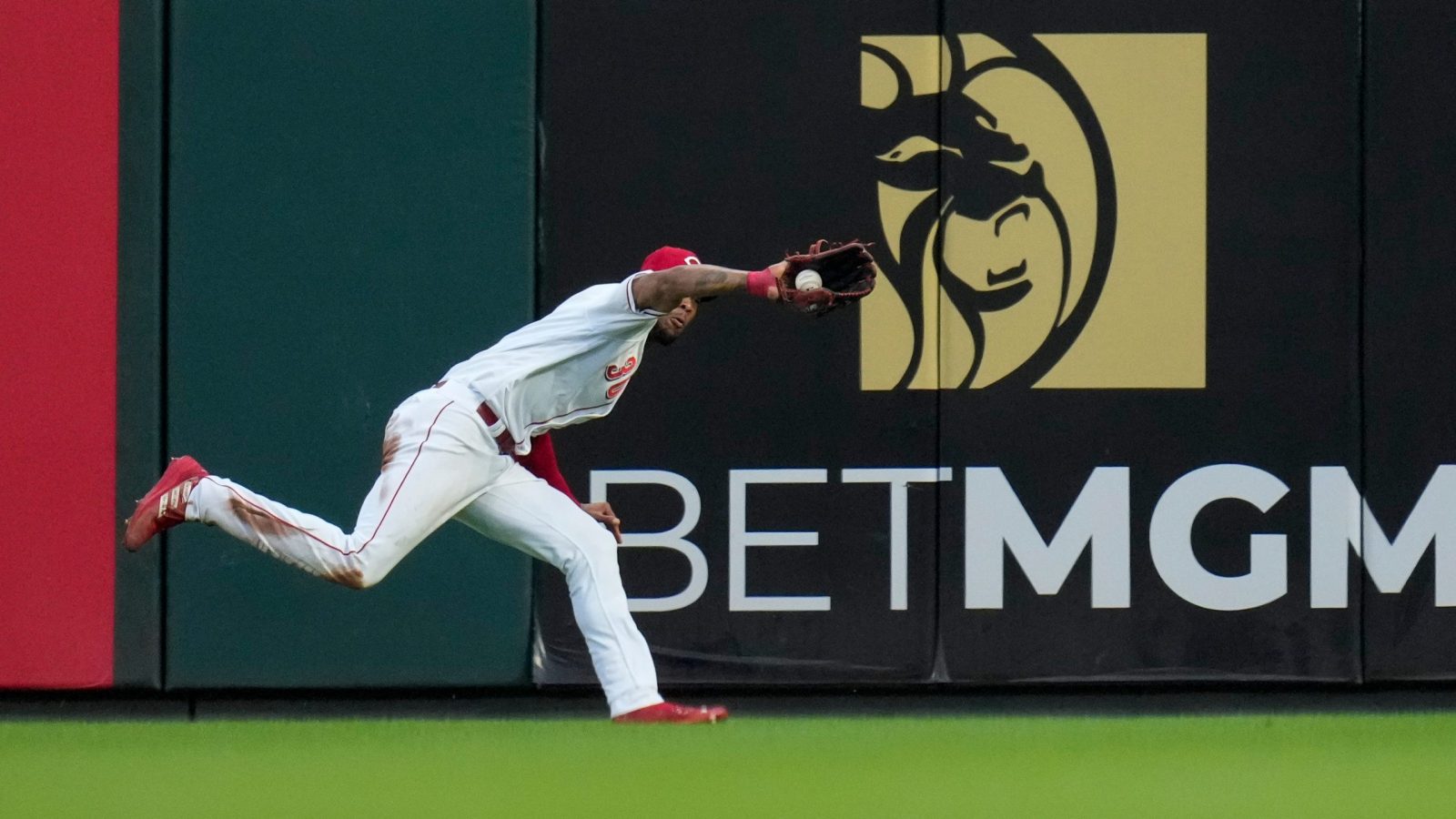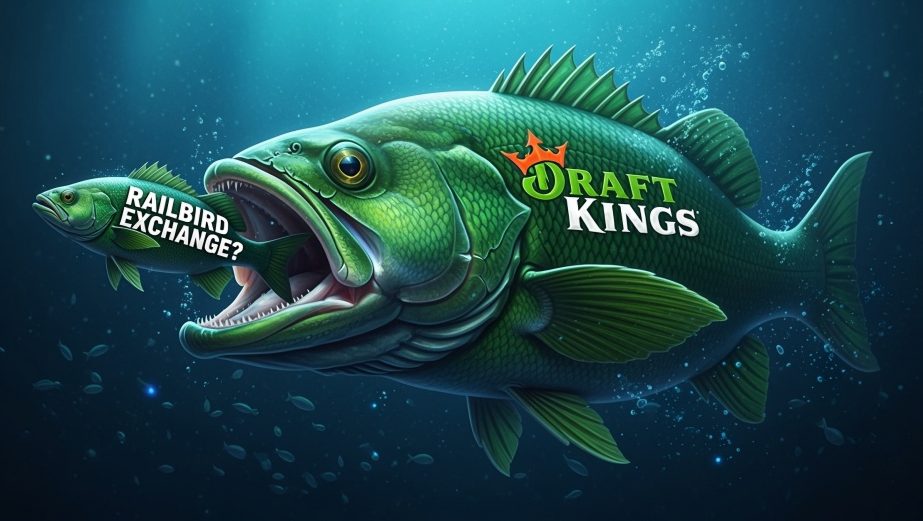BetMGM CEO Adam Greenblatt said the operator will not be a first mover in the world of prediction markets – despite adding that it has the ability to do so.
Asked about the emerging world of sports event contracts during BetMGM’s Q2 earnings call Tuesday, the chief executive of the MGM-Entain joint venture said that BetMGM is not planning any immediate moves.
“We have the ability, but we do not have the desire, to be a first mover,” he said. “Our state regulators have been very clear. Our tribal partners have been very clear. Thirty-four attorneys general have been very clear. They do not believe prediction markets should offer sports contracts.”
Sports event contracts are peer-to-peer wagers on the outcome of sporting events, offered by prediction markets such as Kalshi, and regulated as financial products by the Commodity Futures Trading Commission (CFTC). Their legal status has been challenged by tribes and states, which argue the contracts are an illegal form of sports betting.
Greenblatt went on to add that being the first mover in the prediction market space is not everything, and suggested that even if a major regulated sports betting operator like BetMGM did choose to move first, it may not be able to win a huge share of the market.
“What I will also say is that prediction markets generally are very much liquidity driven,” he said. “So does a first mover have an advantage? I think the advantage is conferred to liquidity, not what happens first.”
Instead, Greenblatt referenced — though did not refer by name to — Polymarket, as well as mentioning Kalshi partner Robinhood and crypto giants Crypto.com and Coinbase. Crypto.com has its own prediction markets, while Coinbase is a Polymarket partner.
“So the returner to the U.S. [Polymarket], their understood scale would be formidable,” Greenblatt said. “And the likes of the Robinhoods and the Cryptos and the Coinbases, whose ability to invest and grow a liquidity pool far exceeds sports betting market incumbents, to the point where I feel like it’s the prediction market operators who are more likely to have an outsized market share than those trying to get into the markets.
“I don’t think BetMGM has a right to win in trying to become a leader in a very different market. From a regulatory perspective, it’s very different. From a tech perspective, very different.”
BetMGM mulling prediction partnership?
But Greenblatt may have also dropped a hint about how BetMGM could enter the predictions space if it does choose to do so, as he mentioned the possibility of obtaining a Futures Commission Merchant (FCM) license: the status given by the CFTC which allows Robinhood to offer Kalshi markets.
An FCM does not operate its own prediction exchange, but rather provides its customers with access to an existing exchange, receiving commission or fees for the customers it passes on to that exchange, which itself holds a Designated Contract Market (DCM) license.
“I know an FCM license to become a partner to a platform is a 12-month process,” Greenblatt said.
If reports are correct, acquiring an FCM license would be a different strategy to rival DraftKings’ approach. Last month, Front Office Sports reported that DraftKings was in talks about acquiring upstart prediction market Railbird, which itself obtained a DCM license to operate its own exchange in June.
FanDuel, meanwhile, may be considering running its own exchange. During a first-quarter earnings call in May, Peter Jackson, the chief executive of FanDuel’s parent company Flutter, said the business was moving staff from its UK-based betting exchange Betfair — the world’s largest betting exchange — to the U.S. to examine the prediction market space.
‘Surcharge-free zone’
Greenblatt also discussed two controversial tax changes that became law in recent months: Illinois’ new per-wager fee of up to $0.50 and the federal 90% cap on deductible gambling losses.
In Illinois, FanDuel and DraftKings both opted to bring in 50-cent-per-bet surcharges to pass the cost of the new fee directly on to customers. BetMGM opted for a different approach, raising its minimum wager to $2.50.
Greenblatt noted the difference and said it may present an opportunity to acquire customers unhappy with the new fees applied by the two market leaders.
“We are not going to pass on, or we have not passed on, the surcharge for players. BetMGM is a surcharge-free zone for now. We have increased our minimum bet to $2.50 so we’re not underwater on small-stake bets, and we’d like players in Illinois to choose their preferred operators in that context.
“Like everything, we make a decision and we evaluate outcomes. We notice that others have introduced a surcharge. In the short term we see that as a relative opportunity for BetMGM. We want, at least for now, BetMGM to be a surcharge-free zone.”
The federal cap on deductions for gambling losses, meanwhile – passed as part of July’s major tax and spending bill – has been widely criticized by pro gamblers. Under the bill, gamblers may only deduct losses worth up to 90% of their total winnings from their taxes, meaning that high-volume players may face tax bills that exceed their winnings for the year.
Greenblatt said the provision “may not have been the best approach,” but expects it to be repealed. There are currently three bills in Congress to restore the cap to 100%: House bills filed by Dina Titus of Nevada and Andy Barr of Kentucky, and a Senate bill filed by Catherine Cortez Masto of Nevada.
“I’ll tell you my opinion: I think this is going to go away,” Greenblatt said. “I think there are enough smart people who recognize that this may not have been the best approach. There are a number of bills underway to unwind the 90 percent cap.
“Frankly we’ve run all the scenarios and the numbers, and the current framework can result in some outcomes that don’t make sense. We think the rational outcome will prevail and that this is going to go away.”
BetMGM ups guidance
The comments came as BetMGM reported strong results for the first half of the year, and upped its full-year guidance.
The operator made $1.35 billion in revenue for the six months to June 30, while its earnings before interest, tax, depreciation and amortization (EBITDA) came to $109 million.
Strong sports betting margins — expected to be a theme across the sports betting industry in the second quarter of this year — alongside reduced marketing spend helped deliver the improved result.
The operator now expects full-year revenue of $2.7 billion, and full-year EBITDA of $150 million. It had previously expected revenue to fall between $2.4 billion and $2.5 billion, and EBITDA to be “positive.”
BetMGM CFO Gary Deutsch said the strength of the results mean that the joint venture could be in a position to return cash to its parent companies — MGM and Entain — for the first time this year.








